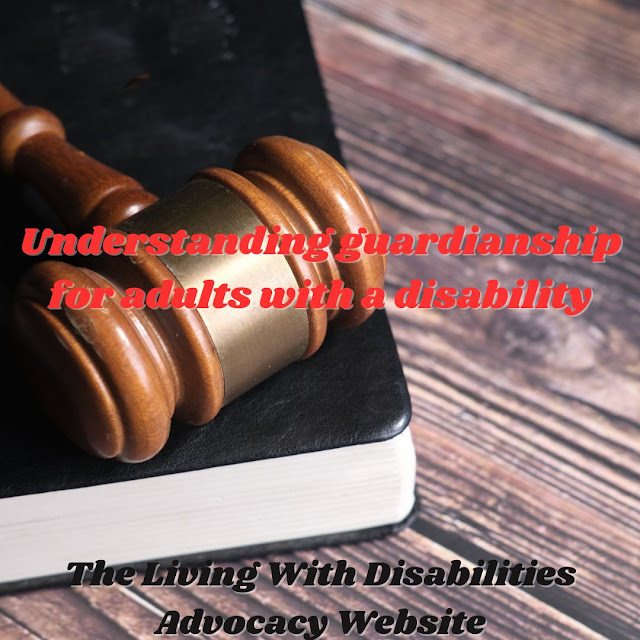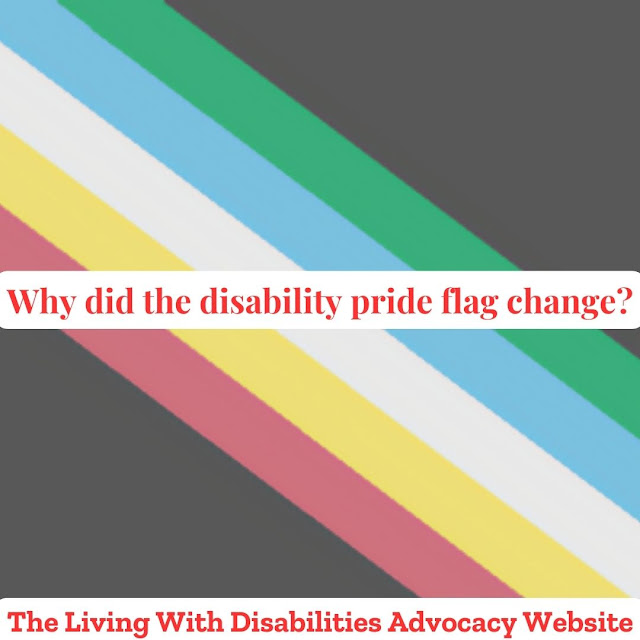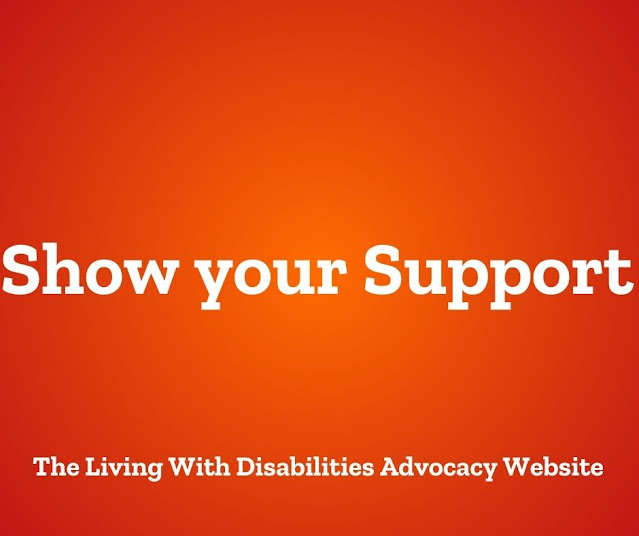Deaf not, Death
If you're a new visitor to this advocacy website, this page aims to increase public understanding of those with disabilities and other conditions.
We suggest you seek a licensed professional counselor or healthcare provider for anything you read on this site.
This week, Living with Disabilities will talk about The Deaf Community, and why people who are deaf are not disabled.
Living with Disabilities did not make a grammatical error in the title. I would like to explain that when people ask a deaf individual a question, they often mistakenly use the word "death" instead of "deaf", which can be confusing and hurtful.
First things first: Katrina Smith, the host, is learning American Sign Language (ASL) as a second language. While she is still relatively unfamiliar with the language, she can pick up a few words here and there and understand what is being said. However, she still needs to be knowledgeable enough to carry on a meaningful conversation through signing.
At the age of fourteen, she began educating herself. In 2018, she enrolled in her first ASL course at a college and is continuing her education in sign language. The topic is based on her knowledge.
Living With Disabilities will now discuss the Deaf/HOH community. Have you ever wondered why deaf people don't consider themselves disabled? It's because they don't have any other disabilities, and can rely on today's technology, interpreters, hearing aids, and cochlear implants to help them. As a result, they don't see themselves as disabled. Why do deaf individuals take pride in their deafness? A deaf person is not inherently broken by their condition. because they can participate in this encouraging community despite their deafness. Many would prefer not to hear. They can live without the technology of today.
What is rude to a deaf person? When a person is signing and you grab their hands, Their hand is how they speak, and they listen with their eyes. So, think about it this way: if a person who is hearing is speaking and another person covers their ears, that is considered rude. Vise versa for a person who speaks with their hands.
Speak to the deaf person directly rather than via their interpreter if they are accompanied by one.
Living with Disabilities wants to go a little further into the community of the deaf. However, there is a significant barrier that a hearing person should not cross because of their limited knowledge of the deaf culture. The host is still getting acquainted with the culture and language. Here are a few more details that will be shared. However, please note that this is not up for discussion unless you are a member of the deaf community.
The following information is from an individual who has completed an American Sign Language (ASL) course and is presently learning through diverse resources provided by members of the deaf community. One of these members is Bill Vicar, a professor who works as an ASL instructor at California State University. His videos are easily accessible on YouTube, and he also has a website called Lifeprint.
There is a belief that hearing people should not teach ASL due to the possibility of conveying falsehoods and misrepresentations. This is because hearing people may make mistakes or use incorrect signs. Therefore, it is essential to learn ASL from a native speaker, just like with any other language. This also applies to studying ASL. To ensure proper instruction, it is recommended to seek out a deaf professor or teacher. It is understood that this viewpoint may receive attention from the hearing community, but there are various arguments supporting the idea that hearing individuals should not teach ASL.
How about the word "Deaf" instead of "Death"? In this episode of "Living With Disabilities," the host Katrina Smith talks about this particular topic. She shares her thoughts on how important it is to give a voice to people with disabilities, including the deaf community. Katrina is proud to be an ally for the deaf community and promises to advocate for and support them.
Living with Disabilities and the host have now explained the correct term for Deaf people. Let's continue to explore Deaf culture and the Deaf community.
When it comes to learning American Sign Language (ASL), I have noticed that many deaf individuals prefer to use the term "deaf" due to the mistakes they often hear from hearing people. For instance, hearing people may mistakenly ask, "Why are you death?" As a hearing person, I acknowledge that errors can happen, which is why I believe it's best for hearing people not to teach ASL. However, it is important to be mindful of your language when asking a deaf person about their deafness. The letters "F" and "T and H" are very close to each other on the keyboard and can easily be confused, just like the letter "G". Moreover, it never hurts to double-check your grammar by taking a quick glance at your writing. This way, you can avoid misspelling and potentially offending a deaf person.
"How should one ask if someone is deaf?" We will discuss the appropriate way to approach this topic. First, if you don't know American Sign Language (ASL), write your question down on paper. Don't feel bad about carrying paper with you, as they will understand that you don't know sign language. Before asking "Are you deaf?", introduce yourself to the person.
Living With Disabilities Presents: The Advocacy Table
a space created for people with disabilities to be able to have freedom of speech and talk on different topics surrounding the disability community. To get more details, check out The Advocacy Table. To become a panelist, write into the show and let the host know what topic you want to talk about. She will then send out a group email to all panelists after the show has reached five or ten people. After the show, a survey will be emailed to you, and we would love to get your feedback.
If you need online support, Disability Safe Haven is great for receiving support. The We Care Team is very protective of its members and asks everyone who joins, to have a profile picture and answer the security questions.
Another online support, Living With Cerebral Palsy, is great for people with cerebral palsy and for family and friends who want to learn more about different types of cerebral palsy and how to support their loved ones who have it. This group has open and closing hours and a 24/7 chatroom. Open and closing hours are based on United States time zones.
To become a guest on Living with Disabilities
https://docs.google.com/forms/d/e/1FAIpQLScN0j1lThH8KaknxmeXIESTBC5NJWJjj9V0jubnYT5yMAffiw/viewform?usp=sf_link
Podcast Link
https://podcasters.spotify.com/pod/show/livingwithdisabilites/episodes/Deaf-not--Death-e2if38b




Comments
Post a Comment